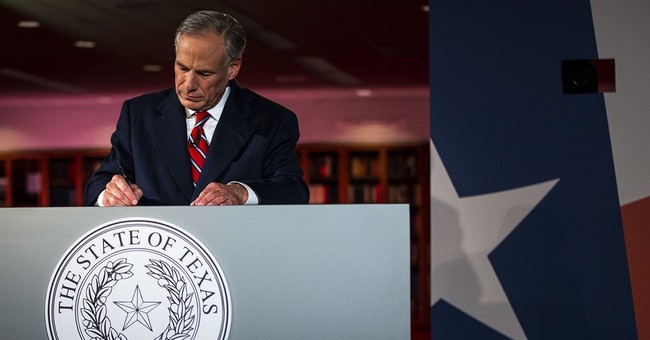Uzay Bulut, 09/01/20 07:58 | updated: 10:59
http://www.israelnationalnews.com/Articles/Article.aspx/25013
Murderous violence against Jewish people in the West – by Islamists and others - is getting alarmingly commonplace. Meanwhile, many Islamists and their apologists have been increasingly promoting the false narrative that “Islamophobia” is no different from antisemitism.
For instance, Turkey’s President Recep Tayyip Erdogan on March 22 called for a global fight against “rising Islamophobia” like the one against “antisemitism after the Holocaust”. He said in his address at a meeting of ministers from the Organization of Islamic Cooperation (OIC): “Just as humanity fought against antisemitism after the Holocaust disaster, it should fight against rising Islamophobia in the same determined fashion.”
Erdogan has long been making misleading analogies between “Islamophobia” and antisemitism as well as fascism and Zionism, a movement that defends the Jewish people’s right to self-determination and espouses support for a Jewish state in the historic Land of Israel.
“Islamophobia must be recognized as a crime against humanity in the same fashion that Zionism, antisemitism and fascism should be,” Erdogan said at the “Fifth Alliance of Civilizations Forum” in Vienna in 2013.
What Erdogan and other Islamists are trying to do is put the victims of violence – the Jewish people – in the same category as the perpetrators of violence or murderous hate- speech – the Islamist anti-Semites.
“Every single fatal jihadi terrorist attack on Jews in the West between 2012 and 2019 took place in Europe, suggesting the continent is now at the focal point of the jihadi terror threat against Jews in the West,” Mitchell D. Silber, the former Director of Intelligence Analysis at the New York City Police Department and currently an adjunct professor at Columbia University’s graduate School for Public and International Affairs, wrote in June, 2019.
He continued: “Four deadly terrorist attacks occurred in Europe between 2012 and 2019, which were carried out by individuals motivated to attack explicitly Jewish targets by violent Islamist ideology.”
However, we are constantly “warned” by Islamists and their allies not to engage in “Islamophobia” even when Islamists are targeting and murdering innocent people for believing or thinking differently.
Unlike antisemitism -- which is defined by the 31 member states of the International Holocaust Remembrance Alliance (IHRA) as “a certain perception of Jews, which may be expressed as hatred…toward Jewish community institutions and religious facilities” -- Islamophobia is a term that, according to the French philosopher Pascal Bruckner, was invented in the late 1970s by Iranian fundamentalists to “declare Islam inviolate.”
The term was re-introduced in a February 1997 consultation paper, titled “Islamophobia its features and dangers,” produced by the U.K.-based think tank, the Runnymede Trust – which in 1996 had established the Commission on British Muslims and Islamophobia. In November 1997, the Runnymede Trust published a follow-up a report called “Islamophobia: a challenge for us all.”
As Bruckner pointed out in a scathing essay that was first published in the French daily, Libération, in 2010,
“The term ‘Islamophobia’ serves a number of functions: it denies the reality of an Islamic offensive in Europe all the better to justify it; it attacks secularism by equating it with fundamentalism. Above all, however, it wants to silence all those Muslims who question the Koran, who demand equality of the sexes, who claim the right to renounce religion, and who want to practice their faith freely and without submitting to the dictates of the bearded and doctrinaire. It follows that young girls are stigmatized for not wearing the veil, as are French, German or English citizens of Maghribi, Turkish, African or Algerian origin who demand the right to religious indifference, the right not to believe in God, the right not to fast during Ramadan. Fingers are pointed at these renegades, they are delivered up to the wrath of their religions communities in order to quash all hope of change among the followers of the Prophet.”
In other words, what antisemitism and “Islamophobia” have in common is nothing. ‘Islamophobia’ is actually a deliberate Islamist goal.
“Forget about ‘Islamophobia’ as a social ill akin to racism,” writes Dr. Andrew Bostom, the author of The Legacy Of Jihad: Islamic Holy War And The Fate Of Non-Muslims.
“The creation of fear of Islam is a sacred obligation of faithful Muslims. Fjordman reminds us how the great contemporary Dutch scholar of Islam Hans Jansen, has observed that the Koran, for example 8:60, the verse alluded to in the Muslim Brotherhood emblem,
‘...actually commands Muslims to instill fear of Islam ‘Islamophobia’ into the hearts of non-Muslims, using any means necessary to force them to submit to Islam's might.’”
Bostom explains that this motif -- instilling terror in non-Muslims -- is repeated in Koranic verses such as 3:151 and 8:12, the statements by Islam’s founder, Mohammed, (“hadith”) and his biography ("sira”).
“Koran 8:60 states,
"‘Against them make ready your strength to the utmost of your power, including steeds of war, to strike terror into (the hearts of) the enemies, of God and your enemies, and others besides, whom ye may not know, but whom God doth know.’
“3:151 ‘We shall cast terror into the hearts of those who disbelieve because they ascribe unto Allah partners, for which no warrant hath been revealed. Their habitation is the Fire, and hapless the abode of the wrong-doers.’
“8:12 ‘(Remember) when your Lord inspired the angels, 'Verily, I am with you, so keep firm those who have believed. I will cast terror into the hearts of those who have disbelieved, so strike them over the necks, and smite over all their fingers and toes.'
“Muhammad reiterates this directive in the most important canonical hadith collection (Sahih Bukhari Volume 4, Book 52, Number 220), stating, ‘I have been made victorious with terror’.”
Bostom concludes: “Today, this true doctrinal and historical meaning of Islamophobia has undergone an Orwellian transformation. Our media and political elites, cowering in submission to the cultural jihadist dictates of the mainstream Muslim Brotherhood front groups which dominate institutional American Islam, now claim ‘Islamophobia’ is an unwarranted, even discriminatory fear of Muslims and their creed.”
Then why are Islamists making such a fuss about “Islamophobia” when terrifying non-Muslims is actually an Islamist duty?
For the term “Islamophobia” that is promoted particularly in the West appears to aim for censorship on the much-needed criticism of the Islamic ideology that has resulted in the annihilation or repression of millions of people including Muslims.
antisemitism or Jew-hatred, however, has historically resulted in severe rights violations, pogroms, and even genocide against Jewish people. Moreover, many Islamists who keep pushing the false narrative that “Islamophobia is the new antisemitism” are themselves anti-Semites and are motivated by the many violent anti-Semitic teachings in the Islamic theology.
Erdogan, for instance, invoked a hadith to sanction killing Jews during a “World Human Rights Day” event on December 11, 2017. "[T]hose who think they own Jerusalem should know that tomorrow they won't be able to hide behind trees," Erdogan proclaimed.
The full hadith that Erdogan referred to says, "The last hour would not come unless the Muslims will fight against the Jews and the Muslims would kill them until the Jews would hide themselves behind a stone or a tree and a stone or a tree would say: Muslim, or the servant of Allah, there is a Jew behind me; come and kill him; but the tree Gharqad would not say, for it is the tree of the Jews."
Herein lies the tragedy:
Banning the legitimate
criticisms of the Islamic
theology to stop
“Islamophobia” will only
empower jihadists and
further harm the victims
of that ideology.
In his review of Dr. Bostom’s “The Legacy of Islamic Antisemitism From Sacred Texts to Solemn History”, scholar Raymond Ibrahim writes,
“Far from being a by-product of Western antisemitism or the creation of Israel, animosity toward the Jews has a firm doctrinal base tracing back to Islam's most authoritative texts.
“Koranic verse after verse, hadith after hadith, castigate, condemn and curse the Jews; they are called ‘corrupters,’ ‘exploiters,’ ‘distorters,’ ‘prophet-killers,’ and, most infamously, ‘pigs and monkeys.’ Such slanderous words are contained in the Koran (the eternal words of Allah) and the Hadith (the words of Islam's prophet). Thus, Muslim hostility for Jews clearly has little to do with circumstance or politics.”
Furthermore, the anti-Semitic teachings in Islam seem to have played a large role in the ethnic cleansing of Jews in the Middle East, North Africa, and the Gulf region. Jews in those regions suffered centuries-long, systematic pressures and oppression under Muslim regimes.
Following the Muslim conquest of the region in the 7th and 8th centuries, under Islamic rule, Jews and Christians became “dhimmis”, second-class subjects forced to buy their lives by paying the heavy “jizya” tax to Muslim rulers. Through the 20th century, the persecution of Jews in Muslim countries continued and more than 850,000 Jews were eventually forced out of Arab countries and Iran, where they had lived for over 2,500 years – fully 1,000 years before the advent of Islam.
Although the history of Jewish persecution in Europe and Russia is well-documented, the Jewish persecution in the Muslim world has largely been ignored by academics. Perhaps, it is partly the fear of being called an “Islamophobe” that has prevented many academics from investigating and writing about the Jewish persecution in Muslim societies.
And Islamists are now importing their murderous Jew-hatred to Europe and northern America. A few examples:
- In Belgium, a high school teacher in Brussels shared a Facebook video of an imam calling for a jihad, or holy war, against the Jews and those who “conspire” with them. Talal Magri, who teaches about Islam as part of the religions major at the Royal Agri Saint-Georges Athenaeum, posted the video in November, 2019 of an unidentified man preaching in Arabic, the La Dernière Heure website reported. “Those who cooperate, work, conspire with the Jews, Allah, take them without delay. Shake their bases and topple their buildings, Allah. Support the jihad fighters, whom some of us find excuses not to join,” the preacher is seen saying.
- In Denmark, imam Mundhir Abdallah of Copenhagen’s Al-Faruq mosque, referred to the hadith calling for Muslims to rise up against Jews. “Judgement Day will not come until the Muslims fight the Jews and kill them,” Abdallah said in a Facebook and YouTube video post in March, 2018.
- In Spain, imam Saleheoldine al-Moussaoui of the municipality of Azuqueca De Henares near Madrid said in a Friday sermon in 2017: “Oh Allah, destroy the plundering Jews… count them one by one, and do not spare a single one of them.”
- In France, Toulouse imam, Mohamed Tatai, in a sermon delivered in 2017, recited the same Hadith, stating that on Judgment Day, the Muslims will kill the Jews. He told his listeners that “prophet Mohammed told us about the final and decisive battle: ‘Judgement Day will not come until the Muslims fight the Jews. The Jews will hide behind the stones and the trees, and the stones and the trees will say: Oh Muslim, oh servant of Allah, there is a Jew hiding behind me, come and kill him – except for the Gharqad tree, which is one of the trees of the Jews.’” The December 15, 2017 sermon was posted on the YouTube channel of the Grande Mosquée de Toulouse on January 30.
- In the US, Pittsburgh Imam Naeem Abdullah - in lectures uploaded to his YouTube channel between October 2016 and December 2018 - said Jews “make a mockery of their religion,” and “have all the money.” He added: “If you look deeper behind the scenes, Jews [sic] running everything,” and said some Jews “were turned into monkeys and pigs, literally.”
- In Canada, in 2014, sheikh Wael AlGhitawi, an imam at a Montreal mosque, asked Allah during a sermon to “destroy the accursed Jews,” and “kill them one by one.” In another sermon in 2017, the imam said that Jews were “people who slayed the prophets, shed their blood and cursed the Lord.”
Herein lies the tragedy: Banning the legitimate criticisms of the Islamic theology to stop “Islamophobia” will only empower jihadists and further harm the victims of that ideology. Even if “Islamophobia” is legally criminalized internationally one day, Islamic violence against Muslims and non-Muslims will continue and probably will get even worse as there will be no one left to criticize the ideas motivating jihadist terror, hatred and abuse.
A good place to begin the battle is to stop spreading the lie that “Islamophobia” is the same as antisemitism.
Uzay Bulut is a Turkish journalist; political analyst and Muslim affiars expert formerly based in Ankara. Her writings have appeared in various outlets such as the Washington Times, Christian Post, Arutz Sheva, Jerusalem Post and Gatestone Institute.


 forth the militia to execute the laws of the Union, suppress insurrections and repel invasions.” Lastly,
forth the militia to execute the laws of the Union, suppress insurrections and repel invasions.” Lastly, 



















